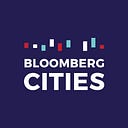Bringing “unbanked” residents into the financial mainstream
Yvonne Green works on the frontline of one of Houston’s toughest challenges: the hurdles many low-income people face when it comes to opening a bank or credit union account.
For some people, that hurdle is their lack of faith in financial institutions. For others, it’s that they simply don’t have enough money to meet minimum-balance requirements. Whatever the reasons, more than one in three Houstonians can be characterized as “unbanked” or “underbanked,” which means they also have a tougher time when it comes to saving, accessing credit, and building their assets.
[Get the latest innovation news from Bloomberg Cities! Subscribe to SPARK.]
Green is the director of Houston’s Bank On coalition, a partnership between city government, financial institutions, and community groups aimed at making banking more accessible and affordable. She encourages individuals to open accounts as part of the financial literacy program she runs. She also works with banks and credit unions to encourage them to offer basic, low-cost accounts that these new customers can afford. “Everyone wants to be financially stable and independent,” she said. “Bank On is a movement that is working to make that happen.”
Started in San Francisco and New York in 2005, Bank On initiatives are now active in more than 75 cities. While each is driven individually from the municipal level, since 2013, they have been connected in partnership with the Cities for Financial Empowerment Fund (CFE Fund), a Bloomberg Philanthropies-supported organization that works with mayors and their teams to develop, test, launch, and replicate financial empowerment strategies.
The CFE Fund has created a national standard for what qualifies as a certified low-cost, no-overdraft transaction account, and has begun quantifying the performance of these accounts for financial institutions and customers. The CFE Fund and the Federal Reserve Bank of St. Louis have been piloting an approach to collecting data on the results, working in partnership with four national banks. Last month, they released a study showing that Green and her counterparts across the country are making a significant difference when it comes to bringing the “unbanked” and “underbanked” into the mainstream financial fold.
[Read: Recasting free financial counseling as a public service]
Just among the four participating banks, the study found that customers have opened nearly 3 million Bank On-certified accounts since 2005. Nearly 600,000 of those accounts were opened since 2017 — and 72 percent of those accounts were opened by people who were new to the financial institution.
Those numbers are important, but it’s what customers did with those accounts that matters more. Accounts were widely and regularly used for traditional banking transactions such as making multiple deposits, withdrawals, and debits. More than one-third of account holders used direct deposit. And account holders saved more than $277 million in check-cashing fees in 2017 alone. These findings indicate that customers are using these accounts in vibrant ways — more so, in fact, than the CFE Fund and Bank On even expected.
“This pilot account data provides more proof of concept than even we had hoped,” said Jonathan Mintz, Founding President and Chief Executive Officer of the CFE Fund. “These safe accounts are drawing customers into mainstream banking by the millions, and they’re using these accounts in demonstratively productive ways that benefit both them and their financial institutions.”
The data can make a real difference in Houston, where Green said she’s always had anecdotal evidence that Bank On was having an impact, but now she has the numbers to prove it. That can make convincing new banks to get on board and offer the accounts that much easier. “Having access to these accounts allows people to practice money management, which helps them understand the financial system,” she said. “And financially empowered communities can build better cities.”
